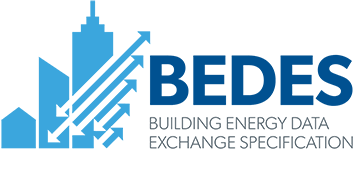Version 2.6
| Term | Term Definition | Options | Unit of Measure |
|---|---|---|---|
| Thermoblock | A boiler or thermoblock are espresso machine components create hot water for brewing and steam for frothing. Non-pump machines use pressure from steam, which is generated by boiling water in a sealed chamber. In a thermoblock arrangement, the high-pressure water pump forces cold water into the thermoblock after it is preheated. | View | None |
| Thermostat | A thermostat is a device that automatically regulates temperature, or that activates a device when the temperature reaches a certain point. | View | None |
| Thermostatic radiator valve | A thermostatic radiator valve (TRV) is a self-regulating valve fitted to hot water heating system radiator, to control the temperature of a room by changing the flow of hot water to the radiator. | View | None |
| Thermostatic zone valve | A zone valve is a specific type of valve used to control the flow of water or steam in a hydronic heating or cooling system. | View | None |
| therms | therms | View | None |
| therms/(gal/day) | therms per gallon per day | View | None |
| therms/ft2 | therms per square foot | View | None |
| therms/hr | therms per hour | View | None |
| Thickness |
Dimension of the thickness of a component. Can be used to define overhang thickness, in addition to overhang depth and width. |
View | ft |
| Thin client | An independently-powered computer that relies on a connection to remote computing resources (e.g., computer server, remote workstation) to obtain primary functionality. Main computing functions (e.g., program execution, data storage, interaction with other Internet resources) are provided by the remote computing resources. Designed for use in a permanent location (e.g. on a desk) and not for portability. | View | None |
| Thin client | Thin-client or Remote is a STB that can receive content over an HNI from another STB or DVG, but is unable to interface directly to the MVPD network. | View | None |
| Third party certification | Fenestration rating produced by a third-party certification body. | View | None |
| Three | Configuration in which hot, cold, and tempered conditioned air are supplied through independent duct systems to the points of usage where mixing may be carried out. | View | None |
| Three dimensional capability | The capability to transmit or display video signals with 3D depth information for stereoscopic display. | View | None |
| Three Star | Level of NGBS Land Development | View | None |
| Throughway | Commonly used street suffix or abbreviations: Trwy | View | None |
| Throughway | Commonly used street suffix or abbreviations: Trwy | View | None |
| Thursday | Thursday is the fourth weekday following Wednesday and preceding Friday. | View | None |
| Tier ID |
This term is intended to capture the tier designation for a particular rate structure. For electricity pricing that is based on tiered pricing, each tier is allotted a certain maximum (kWh), above which the user is moved to the next tier that has a different unit pricing. For example - Tier 1 for rate schedule EV9 |
View | None |
| Tier Maximum |
The maximum amount of resource used at which a tier rate is applied for a given rate schedule and a tier. For example - Tier 1 for rate schedule EV9 is applicable till a maximum kWh of 1000. |
View | Unknown |
| Tier Minimum |
Minimum energy for this rate structure range. |
View | Unknown |
| Tiered rate decreasing | Tiered rates decrease the per-unit price of a utility as usage increases | View | None |
| Tiered rate increasing | Tiered rates increase the per-unit price of a utility as usage increases | View | None |
| Tight | Low infiltration rate. The 2012 IECC code requires between 3 and 5 ACH (air changes per hour) @ 50 pascals pressure for new construction (depending on the climate zone). The ENERGY STAR Certified Homes program requires between 3 and 6 ACH depending on the climate zone. | View | None |
| Tile | Tile finish materials can be made from ceramic, glass, plastic | View | None |


